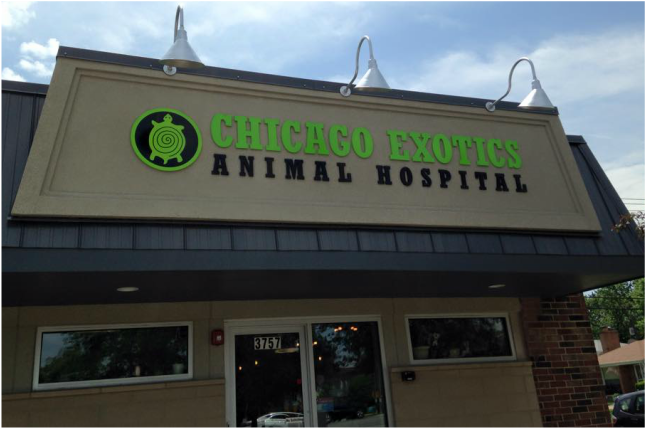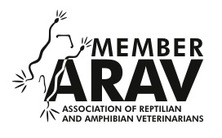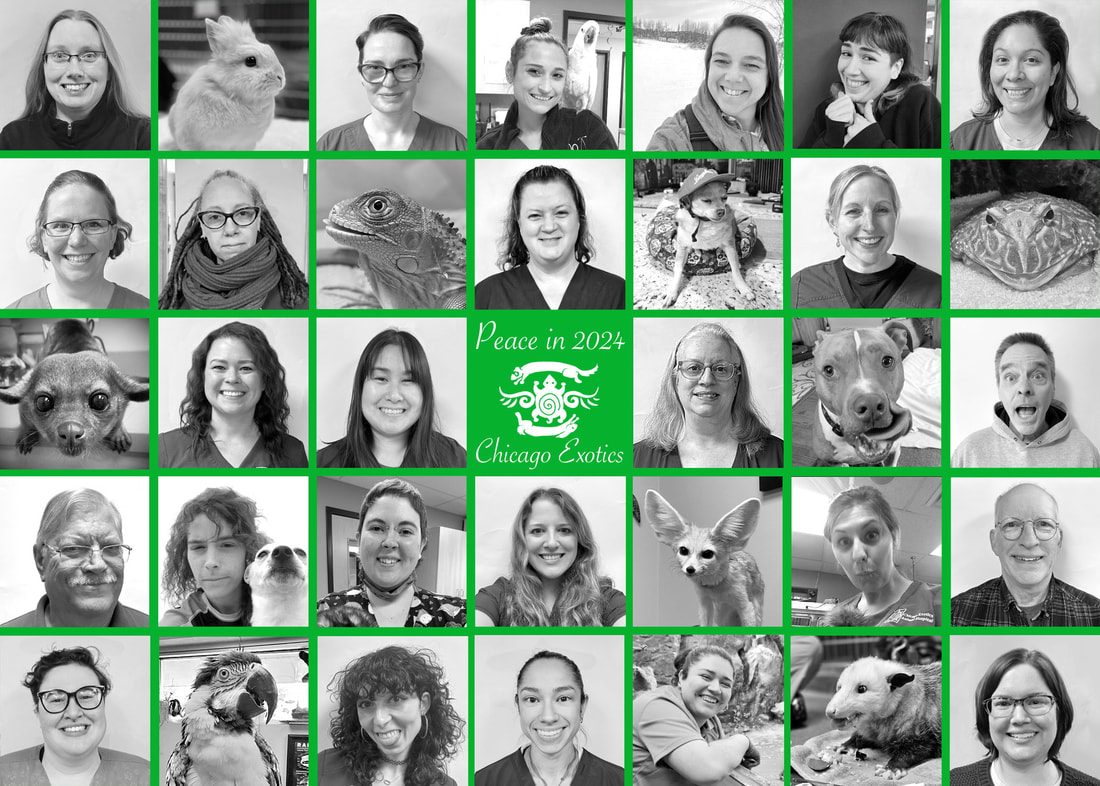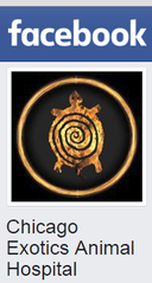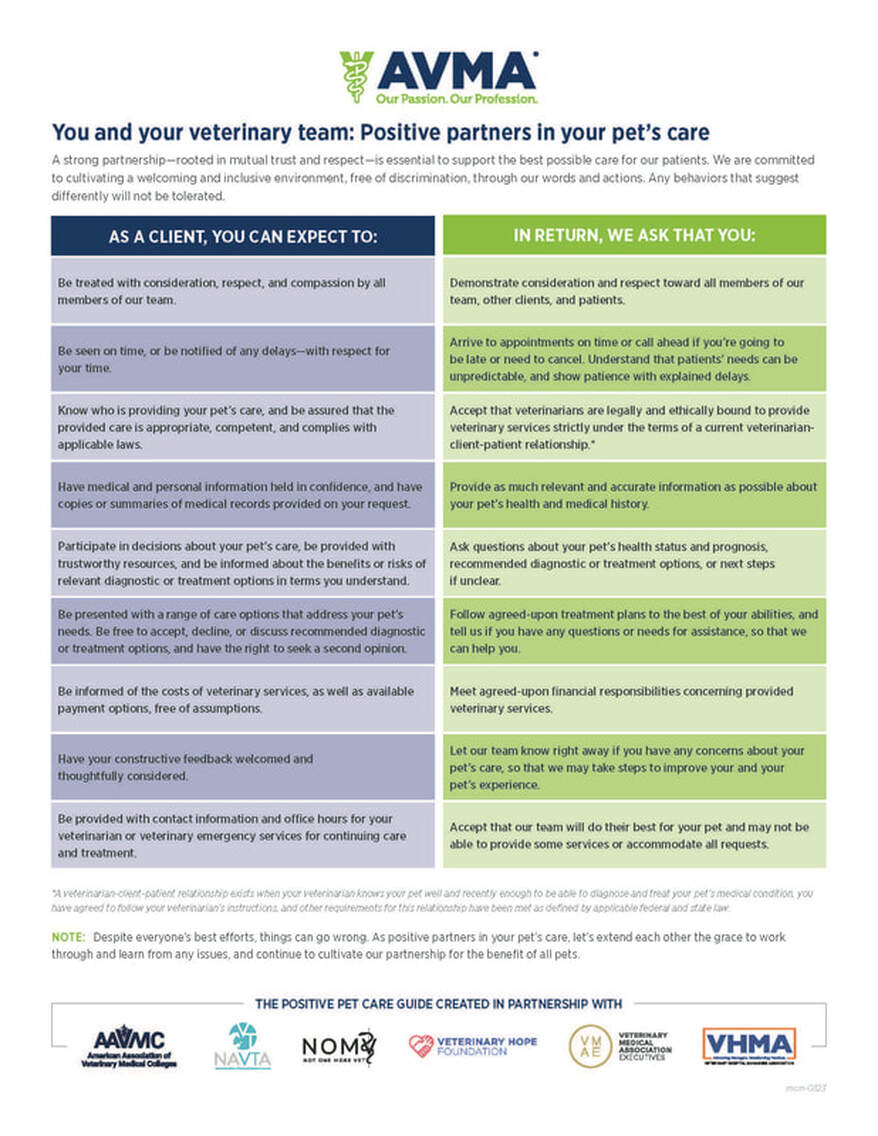Welcome to Chicago Exotics Animal HospitalWe provide veterinary care for avian and exotic animals. We have a state-of-the-art facility designed specifically for avian and exotic animals!
Exotic pets like rabbits, ferrets, reptiles, birds, fish, hedgehogs, and guinea pigs have special care needs and Chicago Exotics specializes in meeting those needs. We operate a full service avian and exotic animal hospital featuring Dr. Susan Horton, Dr. Melissa Giese, Dr. Stephanie Moy, Dr. Dana Varble, Dr. Deanne Strat-Zenoni, Dr. Jenifer Nix, Dr. Ellen Boyd, and Dr. Jessica Byerly! Their extensive knowledge and expertise with exotic species combines the best of personal and clinical experience. Our location is in Skokie, Illinois. We provide service for the entire Chicago area as well as Southern Wisconsin and Western Indiana.
Our hospital has the capability of serving all sorts of animals from the smallest fish to the largest reptiles. Our warm exotic ICU features avian incubators, reptilian incubators (aquatic and not), fish and amphibian ICU tanks, avian nebulizer units, and inline oxygen for all cages. Outside the warm room, we have comfortable cages for all the soft fuzzy and not so fuzzy mammals and marsupials. We are especially bird friendly! Our in-house diagnostic capability includes full blood and chemistry work, cytology, radiology, endoscopy, ultrasound, and surgery. We offer the opportunity for unique species to receive competent and compassionate veterinary care. Cases are seen by appointment, but emergency patients are gladly accepted as the need arises. We are no longer accepting personal checks for payment. We have CT appointments available. Chicago Exotics Animal Hospital has invested in a Xoran Catscan for service to our tiny patients. The appointment is a drop-off and stay until the end of the day type appointment. Anesthesia is necessary as is a previous exam by one of the CE doctors. We are using a panel of expert radiologists to read and report on our CT images. Please call us if you have any questions. Here is more information. Now available: Acupuncture and Chiropractic medicine for exotics! Dr Strat has been practicing these forms of alternative medicine for many years. She now offers these therapeutic options every other Friday. Call for an appointment today! Chicago Exotics does provide inspections for USDA permit holders as well. Call to get a quote for a site visit. We are available for honeybee consultation. Dr. Horton has kept honeybees for many years. For information on the new rules regarding medicine for your bees, see http://www.beeculture.com/do-i-need-a-vet-for-my-bees/. You must be willing to pay for a consultation to establish a valid VCPR, fill out the new client information sheet and history sheet, and share pictures of your hives and the problems you are encountering. Dr. Horton is the only doctor in our practice currently available for this. Patience will be required as she is only available 3 days a week. Hive side consults are not available. Erchonia Laser therapy is available by appointment! Call and schedule your laser therapy today!! Our Care Sheets section contains valuable information on caring for your pet. If one of the doctors sent you to this website for a handout, this is where you want to go. Are you a vet looking for referral information? You will also need to fill out this referral sheet and send all pertinent lab work and imaging. Are you a new client who needs new client form? Please also fill out an Avian, Mammalian, Amphibian, Fish, or Reptile history form before you come in. Just print then fill out these forms before your next visit and bring them with you. Please arrive 15 minutes early for your first appointment so that we can enter all this information into the computer. Are you a veterinary student looking for an externship? See our externship page for more information! Have a look at our blog section! Check out Dr. Horton in this personal interview with Linda Harrison from HBD Chat! RHDV2 is in Chicago!! Confirmed cases of the deadly RHDV2 have been confirmed in the Chicago as of 07/14/23. Please use caution with your rabbits. 1. Be sure your rabbits are vaccinated. 2. Keep your shoes from the outside away from your rabbits. 3. Avoid exposing your rabbits to other rabbits that haven't been vaccinated. Do not pet or otherwise touch unfamiliar rabbits unless they have been vaccinated. 4. Do not bring in any wild rabbits from the outside. 5. If you encounter suspicious deaths in outdoor or indoor rabbits, please contact - for Illinois Illinois Dr. 217-782-4944; 217-547-6030 (24/7); USDA APHIS Veterinary Services Attn: Field Operations, 3410 Hedley Rd, Springfield, IL 62711. Outside of Illinois, contact: this link 6. Please read the information provided in the link below. Follow RHDV2's progression through the United States. Vaccines for Rabbit Hemorrhagic Disease 2 We have the vaccine in the clinic. Please call to make an appointment to get the vaccine and then the booster 3 weeks later. You will need to have been seen in the last 30 days, otherwise a brief pre-vaccine exam will need to occur per the Medgene company (creators of the vaccine). RHDV2 Fact sheet has the latest information here: From House Rabbit Society:
See the House Rabbit Society for more information. Vaccination policy for RHDV2 during an outbreak of cases
Now that we have had several deaths confirmed from RHDV2, we will need to add some suggestions to improve protection.
The Medgene company does not have enough data to tell us how long a vaccine induced immunity is good for. They will only guarantee the vaccine to 6 months but say probably at least a year Most people suggest yearly vaccines are acceptable. The state (Mark Ernst) says they will be changing their quarantine period going forward to 4 weeks. They will not be doing depopulations routinely in the foreseeable future. Recent Avian Influenza outbreaks are killing our wild birds and having a devastating effect on the chicken industry; More information here: Avian Influenza Fact Sheet Wildlife questions
Finding injured or immature wildlife in your yard? Check out this link for information on wildlife rehabilitation and orphans. Red Door Animal Shelter has a nice page on wild bunnies, etc. See this excellent article, "Why Not to Give a Rabbit for an Easter Gift" here.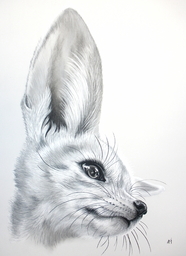
This beautiful artwork was done by Audrey Migeotte and will be featured in an art show in Paris this September. Click the image to see a larger version. She used one of Dr. Horton's pictures from our caresheet. All of the pictures on this website are copyrighted. Please contact us if you are interested in using them for your project. Email: c[email protected] Dear Chicago Exotics Clients and Referring Hospitals, We would like to update you on recent developments concerning COVID-19. COVID-19 Update 2/9/23 Masks are optional in the building. Emergencies, technician appointments, dental exams, drop-off appointments, and pick-ups will continue to be welcomed into our building. When you arrive for your appointment, come into the building and check in. Please be patient will we ensure everyone's safety.
All appointments require a deposit. The deposit will be applied to your final bill at the time of services. This deposit is nonrefundable if you cancel with less than 24 hour's notice of the appointment. Please be advised that Chicago Exotics Animal Hospital has implemented new protocols because of concerns about spreading COVID-19. These protocols go into effect immediately. Our goal is to take care of your pets, while adhering to the recommendations of the CDC and limiting personal contact as much as possible. At CEAH, we want to be particularly cautious about COVID-19 to help protect you, your family and our staff.
Be healthy and safe, Dr. Horton and the Chicago Exotics Animal Hospital Team
|
- Home
- Emergency Care
-
Care Sheets
- General Care >
-
Birds
>
- Amazon Care
- Avian Influenza Fact Sheet
- Avian Influenza for Poultry Fact Sheet
- Avian Bornavirus Testing
- Budgie Care
- Canaries
- Chicken Care
- Chronic Egg Laying
- Cleaning and Disinfecting
- Cockatiels (and other small Psittacines)
- Cockatoo Care
- Converting Your Bird to a Pelleted Diet
- Feather Picking
- General Parrot Care
- Handfeeding Baby Parrots
- Healthy Shopping for your Birds
- Infectious Diseases of Parrots
- Instructions for Physical Therapy in Birds
- Lead Poisoning
- McWatters Diet (Homemade Mash)
- Macaw Care
- Parrot Precautions
- Polyoma Virus
- Psittacine Beak and Feather Disease
- Proventricular Dilatation Disease
- Spiroform Pharangitis (Spirochetes)
- Baby Starling and Sparrow guidelines
- Can smoke affect my bird?
- Territorial Aggression
- Unsafe Plants for Birds
- Weaning Baby Birds
- What to Feed Your Pet Bird
- Wing Injury and Rehabilitation
- Wing Trims
- Your Overly Reproductive Female Bird
- Zinc Toxicity
- Caiman Care
- Ferret and Fox Care >
- Fish >
- Invertebrate Care >
- Frogs, Toads, and Other Amphibians >
-
Guinea Pigs and Rodents
>
- Chinchilla Care
- Cuy Criollo (Giant Guinea Pig)
- Health Problems with Guinea Pigs
- Degu Care
- Gerbil Care
- Guinea Pig Care
- Hamster Care
- Diabetic Hamster Diet
- Mice Care
- Rat Care
- Health Problems with Rats
- Prairie Dog Care
- Odontoma
- Veggies For Guinea Pigs
- Visible Tumors in Rodents
- Vitamin C Deficiency In Guinea Pigs
- Hedgehog Care >
- Kinkajoos and Armadillos >
-
Lizards
>
- Anole Care
- Bearded Dragon Care
- Blue Tongued Skink Care
- Crested Gecko Care
- Geckos of New Caledonia
- Crocodile Monitor Care
- Frilled Lizard Care
- Green Iguana Care
- Jackson's Chameleon Care
- Leopard Gecko Care
- Nile Monitor Care
- Old World Chameleon Care
- Panther Chameleon Care
- Red-Eyed Crocodile Skink Care
- Savannah Monitor Care
- Tegu Care
- Thai Water Dragon Care
- Uromastyx Care
- Veiled Chameleon Care
- Potbellied Pigs >
-
Rabbits
>
- Bonding Rabbits Bullet Point Checklist
- Healthy Shopping for Rabbits
- Complete Rabbit Care
- Getting To Know Your New Bunny
- Training Your Bunny
- What To Feed Your Rabbit
- Learning to Use the Litter Box
- What To Expect From Your New Rabbit
- Dental Disease in Rabbits
- Heart Disease in Rabbits
- Healthy Stool in Rabbits
- Gastrointestinal Stasis in Rabbits
- RHDV2 Fact Sheet
- Parasites of Rabbits
- Sore Hocks in Rabbits
- Pasteurella in Rabbits
- Medicating Your Rabbit or Guinea Pig
-
Snakes
>
- Amazon Tree Boa Care
- Ball Python Care
- Black Rat Snake Care
- Boa Constrictor Care
- Brazilian Rainbow Boa Care
- Burmese Python Care
- California Kingsnake Care
- Cornsnake Care
- Dumeril's Boa Care
- Eastern Kingsnake Care
- Emerald Tree Boa Care
- Garter Snake Care
- Green Tree Python Care
- Western Hognose Care
- Mexican Black Kingsnake Care
- Rosy Boa Care
- Sand Boa Care
- Western Fox Snake Care
- Inclusion Body Disease
- Sugar Gliders and Marsupials
-
Turtles and Tortoises
>
- Alligator Snapping Turtle Care
- Bell's Hingeback Care
- Box Turtle Care
- Chinese Box Turtle Care
- Common Snapping Turtle Care
- General Tortoise Husbandry
- Leopard Tortoise Care
- Mud Turtle Care
- Musk Turtle Care
- Painted Turtle Care
- Red Eared Slider Care
- Russian Tortoise Care
- Soft Shelled Turtle Care
- Sulcata Care >
- Common Health Problems
- General Care of Aquatic Turtles
- Redfoot tortoise Care
- Contact
- Vets, Externs & Shelters
- Products
- Links
- About Us
- Chicago Exotics Blog
- Happy Turtle Stories
- Tour
- ADV Testing Information
- Lacy Act Summary

